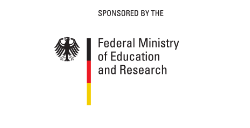The Centre for Biodiversity Monitoring and Conservation Science (zbm) was created in 2020 with a focus of addressing the challenges facing worldwide biodiversity declines. Its scope covers large-scale experimental work on the drivers of biodiversity change, landscape-wide mensurative studies, laboratory experiments in cages and growth cabinets, but also technology development for modern biodiversity monitoring. Among the
The ZBM's mission is to develop and foster links between experimental ecology, biodiversity monitoring, and societal demands, across national and international institutions and cooperation partners.
Novel tools and techniques in DNA-based biodiversity monitoring, but also in image recognition are combined with solid experimental design, allowing for “strong inference”.
As arthropods (especially insects) make up a major component of terrestrial biodiversity, they are the main research focal taxonomic group in the ZBM.
Understanding the causes and consequences of biodiversity change
Biodiversity change is caused by multiple, interacting drivers such as biological invasions, land-use change, natural resource extraction, climate change and pollution. The ZBM contributes to understanding the causal network of relationships among these drivers and how these affect biodiversity change in space and time.
Developing novel sampling designs, methods and technology for biodiversity monitoring
Based on hypotheses on relationships between biodiversity change and interacting drivers, sampling designs, methods and technology are developed that allow a scalable, non-centralized approach to biodiversity monitoring, including citizen science approaches.
Counteract biodiversity loss in key taxonomic and functional groups of organisms
The ZBM works together with stakeholders to counteract biodiversity loss for taxonomic groups and organisms that are of particular scientific, societal or economic importance.
Fostering scientific discovery, hypothesis generation and predictive accuracy
The ZBM contributes to a better understanding of the structural and functional organization of ecosystems and biodiversity. Predictive accuracy will help to address policy-relevant questions and provide guidance for decisions on biodiversity conservation.











